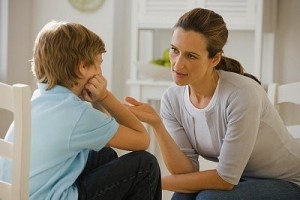How do we talk to our children about tragic events

This week, parents nationwide have probably been deliberating the same challenging question: how do we explain the Manchester bombings to our children?
When I woke up yesterday morning and saw the terrible news, I called my husband who was already at work. He told me to make sure that I kept the news off in front of our children as it was not only horrendous but also particularly sensitive for children and teenagers.
We both agreed, however, that we did need to tell them. In an article recently re-published by the Guardian, Annalisa Barbieri recounts trying to keep the Madeleine McCann story from her daughter and the horror of the playground rumours that took the place of the real story.
We knew that we wouldn’t be able to keep our children from hearing the news and perhaps weren’t right to want too. But we wanted them to hear it in a way that would minimise their worries.
It turns out that they did come home from school having been told the news and the school very sensibly let them watch an edition of Newsround which I’m confident would have explained it in an age-appropriate way.
My point is, we can’t shield our children from news like this, but we can influence the way in which they process it. We can choose what details to share and focus on the many humane stories that are often associated with tragedy too.
I think it’s vital that however young our children are, they learn about events like these via us, as parents, and we that tell them about the world in a way that arms them with the information they need to know. Most importantly, we need them to know that it’s okay to talk about things that scare us.
So my tips for any parents would be:
1. Always tell the children yourself. It’s so much better for them to hear it from you than to hear things in the playground.
2. Make it appropriate to the child. It’s not necessarily just about being age-appropriate, all children have different sensibilities and some will be more affected than others. Even siblings, as all parents will know can be very different in the way they process the world.
3. Be honest and answer their questions, but reassure them that events like this are very rare.
4. Focus on any examples of positivity.
There’s also a piece I found on the BBC website that provides some further interesting guidance too.










 Recent Posts
Recent Posts Recent Comments
Recent Comments
 Archives
Archives

Leave a comment